Septoplasty in Turkey
Search and Compare the Best Clinics and Doctors at the Lowest Prices for Septoplasty in Turkey

Find the best clinics for Septoplasty in Turkey
With Medijump you can browse 41 facilities offering Septoplasty procedures in Turkey. The cheapest price available is $812 in Istanbul. And for the cheapest price globally, prices start from $404 in Romania.
Septoplasty in Istanbul
Price: $ 812
Septoplasty in Antalya
Price: $ 2,179
Romania offers the best prices Worldwide
Price: $ 404
Ugurlu Plastic Surgery Clinic, located in Levent Mahallesi, Istanbul, Turkey offers patients Septoplasty procedures among its total of 33 available procedures, across 4 different specialties. Currently, there's no pricing information for Septoplasty procedures at Ugurlu Plastic Surgery Clinic, as all prices are available on request only, whilst the national average price is approximately $2,318. All procedures and treatments are undertaken by the lead specialist at the Clinic, and they are not accredited by any recognized accreditations institutes
- Home
- Turkey
Compare Before & After Photos of _procedure_photos.phpSeptoplasty
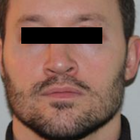
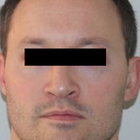
Front view
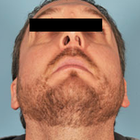
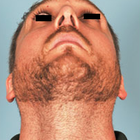
Front view
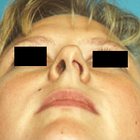
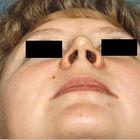
Front view
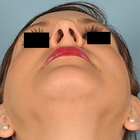
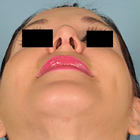
Front view
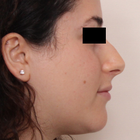
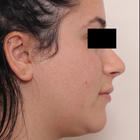
Full-side view
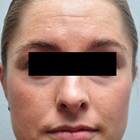
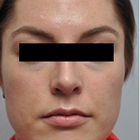
Front view
WHY US?
At Medijump, we're making medical easy. You can search, compare, discuss, and book your medical all in one place. We open the door to the best medical providers worldwide, saving you time and energy along the way, and it's all for FREE, no hidden fees, and no price markups guaranteed. So what are you waiting for?

Free

Best Price

Widest Selection

Risk-Free
What you need to know about Septoplasty in Turkey
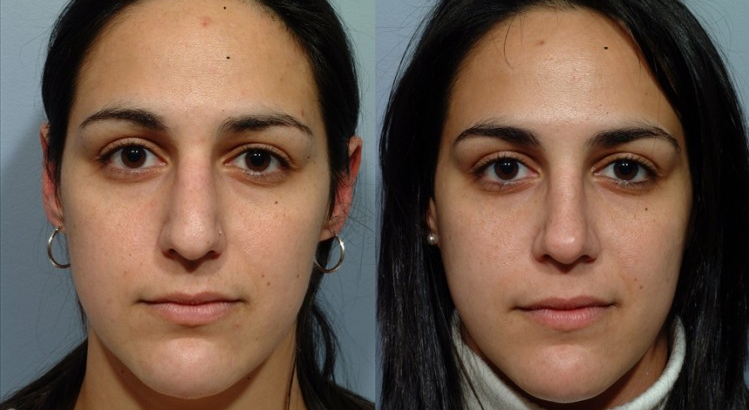
A septum is a bone and cartilage that separates the nasal cavity of the nose. When your nasal septum is off-center, crooked, or moved to one side of your nose, it is a condition known as a deviated septum and can make breathing difficult. To correct this condition, you may need to undergo Septoplasty, where your septum will be straightened to allow better airflow through your nose. This surgery is the only way to fix a deviated septum. However, septoplasty may also be performed to treat long-term sinusitis, remove nasal polyps, or treat other conditions that block the nasal airways. Sometimes, surgeons also recommend this surgery to stop recurrent nosebleeds and facial pains. For conditions other than deviated septum, surgeons often only recommend septoplasty after ruling out other treatments.
What does a Septoplasty Procedure Involve?
A deviated septum is common, but when the condition is severe, it can block one side of your nose and reduce airflow. It can also contribute to crusting or bleeding. If you experience difficulty breathing through your nose that significantly affects your life, you may want to consider septoplasty. Before the surgery, your doctor will review the details of the surgery and ask you to complete some routine tests, such as a blood test, electrical heart tracing, or X-ray. Be sure to tell your doctor if you have any possible allergies. To prepare for the procedure, you may need to stop taking certain medications at least two weeks before the surgery because they can increase your risk of excessive bleeding and the medications include aspirin, ibuprofen, and other blood-thinners.
Septoplasty can be carried out under local anesthesia or general anesthesia. If you have the surgery under local anesthesia, you should not eat or drink anything after midnight the night before the procedure. Not eating and drinking will prevent you from vomiting and choking if the anesthesia nauseates you during surgery. Your surgeon will start the surgery by making an incision on one side of your nose to access the septum. They will then lift the mucosa lining that covers the cartilage and bone. Next, they will reshape the cartilage and bone to move the deviated septum to the correct position. Extra pieces of bone or cartilage that make barriers will be removed. Then, they will reposition the mucous membrane. You may need stitches to hold the septum and membrane in place. Soft silicone splints are sometimes inserted inside the nostrils to support the septum. The whole procedure takes between 30 to 90 minutes to complete.
How Long Should I Stay in Turkey for a Septoplasty Procedure?
Septoplasty is an outpatient procedure, which means you will likely go home on the same day of the surgery after the anesthesia has worn off unless major complications arise. However, you should stay in the Turkey for 3-4 days for the initial recovery and follow-up checkups. If your surgeon places splints in the nose, they will be removed within seven days. You may return home when your surgeon allows you as long as there is no complication.
What's the Recovery Time for Septoplasty Procedures in Turkey?
You may feel drowsy for a few hours following the surgery and you may also feel pain. However, your surgeon will prescribe medication to help with the pain. Some congestion and bleeding can occur after you are discharged from the hospital as your body recovers, but these symptoms should be gone in 2 weeks. The recovery period varies from one person to another. In general, you should be able to return to work within a few days, but you should allow at least three weeks before going back to your full normal routine. You should also limit your physical activities such as exercise for several weeks to minimize swelling and speed up healing because intense physical activities can increase your blood pressure and lead to bleeding.
What sort of Aftercare is Required for Septoplasty Procedures in Turkey?
Your doctor will give you post-operative care instructions, which you will need to follow, The wound on your nose will heal fairly quickly, and your breathing will improve shortly after the procedure. For a quicker recovery, you may need to elevate your head at night to keep the swelling down, wear a button-up shirt so you do not need to pull clothing over your head, and do not blow your nose for at least two to three days after surgery. Avoid drinking alcohol, smoking tobacco, returning to work too soon, strenuous activities, and being in a crowd where people are smoking or coughing.
What's the Success Rate of Septoplasty Procedures in Turkey?
The success rate for septoplasty is high, with up to 85% of people experiencing a significant improvement in their nasal blockage after surgery.
However, some people will require a second surgery if they are not satisfied with the results. Septoplasty is a very low-risk procedure, but you should be aware of the possible complications and side effects and these risks can include:
- Bleeding in small amounts is common, but in rare cases, excessive bleeding may occur.
- Infection can occur after septoplasty because the nose is not a sterile environment.
- Toxic shock syndrome is a very rare and life-threatening infection.
- Septal perforation is a small hole that can sometimes develop in the nasal septum during or after the surgery.
- Spinal fluid leak and it is extremely rare.
Other risks such as scarring, and altered nose shape, discoloration of the nose, a decreased sense of smell, tooth or nose numbness, and continuing symptoms are also possible. Other than following your surgeon’s aftercare instructions, keeping the nose clean and washing your hands often can reduce the risks.
Are there Alternatives to Septoplasty Procedures in Turkey?
Although most conditions of a deviated septum can only be treated by septoplasty, there are nonsurgical treatments for other nasal blockages to help you breathe better. If your nasal blockage is caused by an allergy, you may take antihistamines from your doctor or over-the-counter. In cases of bacterial infection, your doctor can prescribe antibiotics to help clear the nasal airways.
Whilst the information presented here has been accurately sourced and verified by a medical professional for its accuracy, it is still advised to consult with your doctor before pursuing a medical treatment at one of the listed medical providers
No Time?
Tell us what you're looking for and we'll reachout to the top clinics all at once
Enquire Now

Popular Procedures in Turkey
Prices Start From $1,945

Prices Start From $101

Prices Start From $192

Prices Start From $500

Recommended Medical Centers in Turkey for Septoplasty

- Interpreter services
- Translation service
- Religious facilities
- Medical records transfer
- Medical travel insurance
- Health insurance coordination
- TV in the room
- Safe in the room
- Phone in the room
- Private rooms for patients available

- Interpreter services
- Translation service
- Religious facilities
- Medical records transfer
- Medical travel insurance
- Health insurance coordination
- TV in the room
- Safe in the room
- Phone in the room
- Private rooms for patients available

- Interpreter services
- Translation service
- Religious facilities
- Medical records transfer
- Medical travel insurance
- Health insurance coordination
- TV in the room
- Safe in the room
- Phone in the room
- Private rooms for patients available

- Interpreter services
- Translation service
- Religious facilities
- Medical records transfer
- Medical travel insurance
- Health insurance coordination
- TV in the room
- Safe in the room
- Phone in the room
- Private rooms for patients available

- Interpreter services
- Translation service
- Religious facilities
- Medical records transfer
- Medical travel insurance
- Health insurance coordination
- TV in the room
- Safe in the room
- Phone in the room
- Private rooms for patients available

- Interpreter services
- Translation service
- Religious facilities
- Medical records transfer
- Medical travel insurance
- Health insurance coordination
- TV in the room
- Safe in the room
- Phone in the room
- Private rooms for patients available

- Interpreter services
- Translation service
- Religious facilities
- Medical records transfer
- Medical travel insurance
- Health insurance coordination
- TV in the room
- Safe in the room
- Phone in the room
- Private rooms for patients available

- Interpreter services
- Translation service
- Religious facilities
- Medical records transfer
- Medical travel insurance
- Health insurance coordination
- TV in the room
- Safe in the room
- Phone in the room
- Private rooms for patients available

- Interpreter services
- Translation service
- Religious facilities
- Medical records transfer
- Medical travel insurance
- Health insurance coordination
- TV in the room
- Safe in the room
- Phone in the room
- Private rooms for patients available

- Interpreter services
- Translation service
- Religious facilities
- Medical records transfer
- Medical travel insurance
- Health insurance coordination
- TV in the room
- Safe in the room
- Phone in the room
- Private rooms for patients available
Septoplasty in and around Turkey
About Turkey
Where East meets West – Turkey is considered to be both Asia and Europe, with 95% of its landmass being located in Asia. Rich in culture and history, a land once inhabited by some of history’s greatest empires, including most recently the Ottoman Empire and long before that, the Roman and Byzantine Empires. Of Turkey’s 1,200+ medical facilities, of which many are JCI-accredited and this includes an even mix of publicly and privately owned hospitals and clinics.
700,000 annual medical tourists are drawn to Turkey each year, traveling from all across the globe, particularly from within Europe and the Middle East, many of which travel for Septoplasty procedures. Dental, Cosmetic, Bariatric, and Reproductive procedures are most common, including Veneers, Hair Transplants, Gastric Bypass Surgeries, and IVF. Popular medical tourism destinations outside of the capital, Ankara, of course, include Istanbul and other regions like Antalya and Izmir.
Popular Parts of Turkey
With a population of around 85 million, Turkey has a landmass of nearly 800,000 square km. The capital city is Ankara, located inland, however, Istanbul is the most populous and most recognized city in Turkey with some 15 million inhabitants. Straddling both Europe and Asia, the city attracts 13 million tourists each year, making it the fifth most popular tourist destination in the world.
Additional well-frequented locations encompass Antalya nestled in the southern part of the country, as well as Izmir perched in the west. Paradoxically, the eastern region of the country sees less influx of tourists. One major contributing factor is the enduring Kurdish-Turkish conflict, exacerbated further owing to its geographical closeness to conflict-laden nations such as Syria and Iraq.
Sun-chasers seeking a blend of affordability and indulgence invariably find themselves drawn to the southern holiday resorts like Marmaris and Bodrum. These locales are a magnet for those yearning for 5-star luxury hotels, offered at reasonable prices and with all-inclusive perks, for their vacation getaway.
The discovery of the world’s oldest known megalithic site at Gobekli Tepe in the South-Eastern Anatolia Region has cast much doubt over mankind’s ancient history and consequently attracts a sizable number of ‘History Tourists’. This UNESCO World Heritage Site is believed to be over 11,000 years old, built during a time humans were understood to be simple hunter-gatherers.
Weather and Climate in Turkey
Enjoying a Mediterranean location, Turkey's south coast is graced by refreshing sea breezes. Despite this, the summer months from June through August witness soaring heat with temperatures often climbing into the 40s (104°F). The transitional seasons of spring and autumn bring more temperate weather, and winters are quite mild.
Turkey's vast expanse leads to a variety of weather patterns across its regions. The central parts of the country predominantly feature a semi-arid steppe climate, while the northern Black Sea region showcases far milder conditions compared to the southern Mediterranean Sea region.
Do take note of the potential problem of mosquitos and sandflies, particularly during summers in coastal areas. It's advisable to take proper protective measures against them. Though malaria cases are extremely rare, always consult a healthcare professional for appropriate advice before embarking on your trip.
Getting around in Turkey
Istanbul’s famous Ataturk International Airport sits 24 km outside the city and is home to the ever-popular Turkish Airlines. Most other major airlines service Ataturk, which is often used as a stopover destination for travelers between Europe and Asia. All the other major cities are serviced by their own international airports, with several low-cost domestic airlines joining them together, including AtlasGlobal, IZair, Onur Air, Pegasus Airlines, and SunExpress.
For those preferring to travel by land, Turkey has a few express train routes linking the major cities, most notably, Istanbul to Ankara. City buses are reliable and good value, whilst taxis are cheap, but be sure to negotiate the price before beginning any journey.
Tourist Visas in Turkey
Visa restrictions are relatively light, with a 90-day per visit allowance readily available for many nationalities. Still, e-visas need to be procured in advance, for a fee, by travelers hailing from countries such as the US, UK, Australia, China, and Spain. Conversely, passport holders from countries including France, Germany, Russia, and Singapore are granted visa-free entry.
For nationals from India and Pakistan, conditional e-visas are offered upon arrival, but solely at Ataturk International Airport. These visas have a validity of just 30 days. For comprehensive information on visa requirements, it is recommended to visit the Ministry of Foreign Affairs website.
Additional Information
- The Turkish Lira (TRY) is the local currency where $1 USD is worth about 18 TRY, having experienced heavy fluctuations recently.
- ATMs are in abundance across Turkey and accept all bank cards (Visa, Mastercard). Credit card and Amex payments are accepted in most restaurants and outlets, with more local food vendors or food market stalls, only accepting cash. Tipping is expected as service is not included at restaurants, this is usually between 5-10%. Taxi rides tend not to be tipped, just rounded up.
- Turkish is the local language with the eastern Kurds speaking Kurdish too. English is spoken by many locals working in tourist locations, including major cities.
- Islam (99.8%) is by far the main religion in Turkey, with a tiny Christian population (0.2%). Turkey is, however, a secular country where there is no ‘official’ state religion. Various elements of traditional culture remain, with much being modernized or ‘Westernized’.
- There are many public holidays, most notably Labor Day and Commemoration of Ataturk in May, Ramazan Feast in June, Kurban Bayrami in August, and Republic Day at the end of October.
Popular Searches
- Plastic Surgery in Thailand
- Dental Implants in Thailand
- Hair Transplant in Thailand
- Breast Augmentation Thailand
- Gastric Sleeve in Thailand
- Gender Reassignment Surgery in Thailand
- Laser Hair Removal in Bangkok
- Botox in Bangkok
- Dermatology in Bangkok
- Breast Augmentation in Bangkok
- Coolsculpting in Bangkok
- Veneers in Turkey
- Hair Transplant in Turkey
- Rhinoplasty in Turkey
- Stem Cell Therapy in Mexico
- Rhinoplasty in Mexico
- Liposuction in Mexico
- Coolsculpting in Tijuana
- Rhinoplasty in Korea
- Scar Removal in Korea
- Gastric Sleeve in Turkey
- Bone Marrow Transplant in India
- Invisalign in Malaysia
- Plastic Surgery in the Dominican Republic
- Tummy Tuck in the Dominican Republic
- Plastic and Cosmetic Surgery in Poland
- Rhinoplasty in Poland
- Hair Implant in Poland
- Dental Implants in Poland
- IVF in Turkey
